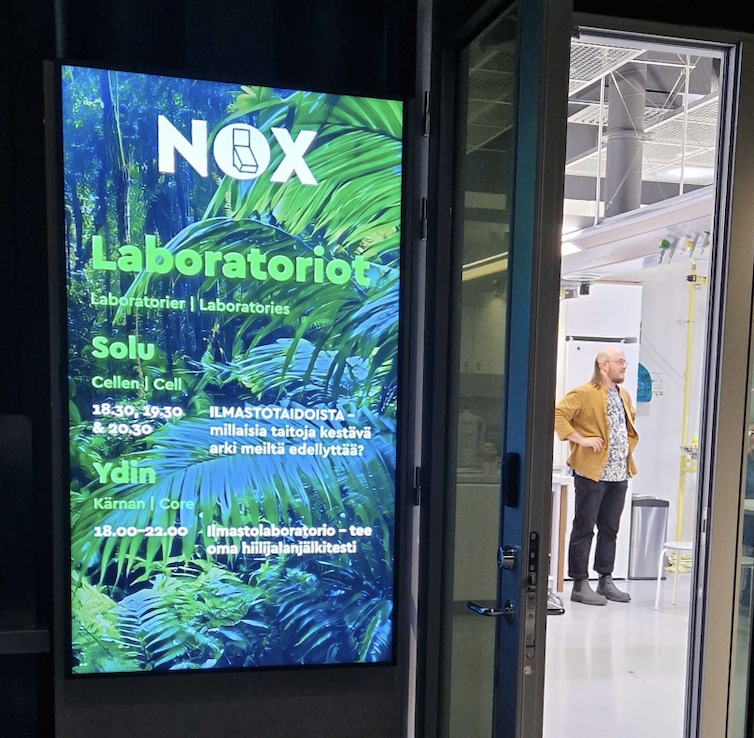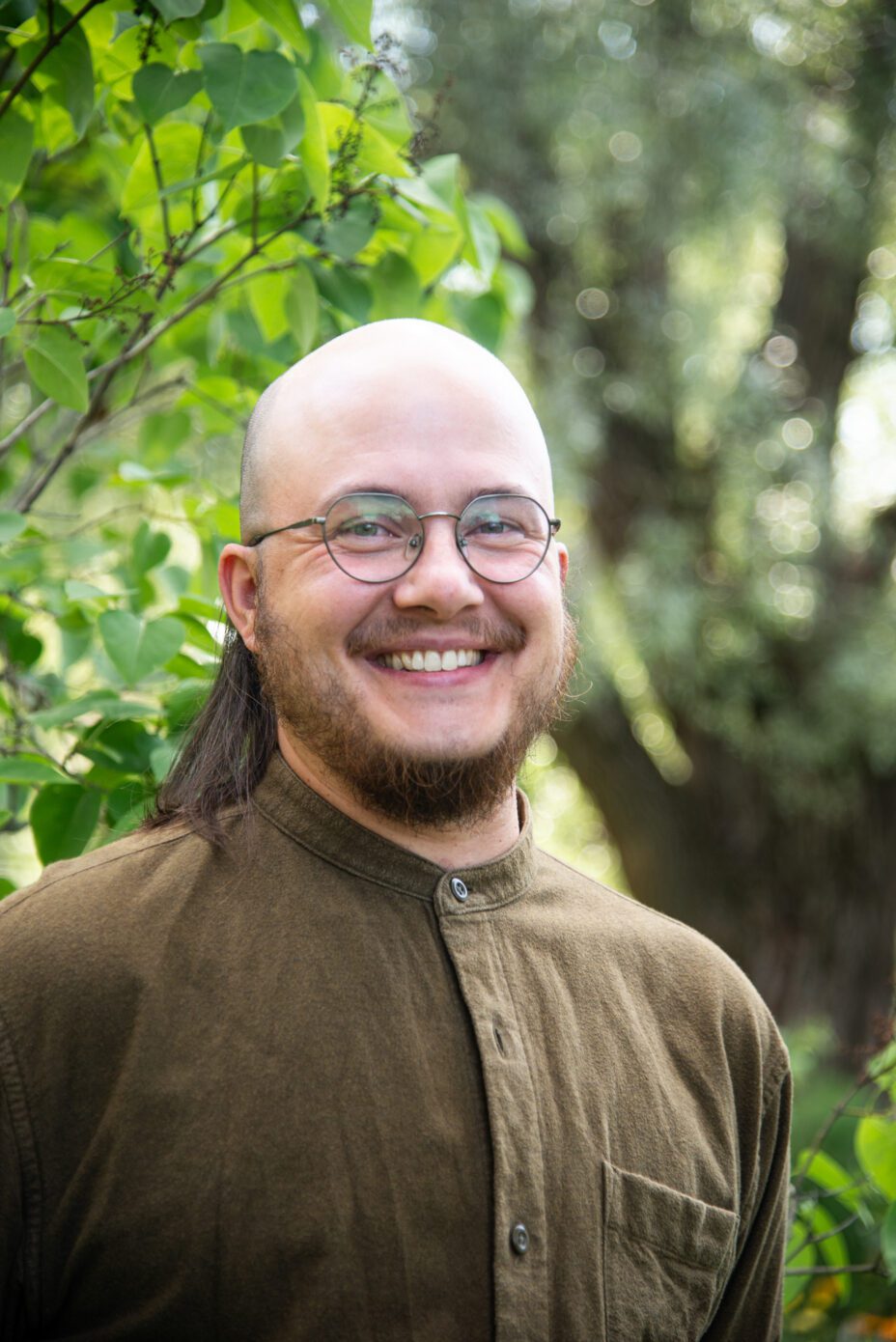Sometimes it can be refreshing for a researcher to air out their thinking by stepping outside familiar academic surroundings and trying to explain their topic in plain, everyday language. Such interaction can strengthen your thinking and spark new motivation for research. This was the experience of Nessling Foundation grantees at the NOX Science Event at Heureka, where, among others, environmental education doctoral researcher Elias Pielikko organized an inspiring workshop and reflects here on what it revealed.
Text: Elias Pielikko
There is already extensive sustainability knowledge, both about everyday practices and structural issues, but the challenge is that this knowledge has not yet translated sufficiently into action. In my doctoral research, I aim to explore solutions to this challenge through adult environmental education.
From this perspective, Heureka’s NOX Science Evening for adult audiences offered an excellent opportunity to discuss with participants the concrete everyday skills needed for a sustainable lifestyle. In the workshop I facilitated, participants took on the roles of teachers and curriculum designers at an imaginary “Citizens’ Climate Skills School.” In small groups, they brainstormed what kinds of lessons, spring festivals, and “volunteer days” such a school could organize. To support their thinking, participants used the EU’s GreenComp framework, which defines twelve sustainability competences under four main categories.

The workshop’s lively discussions produced a variety of suggestions for the school’s curriculum. Participants proposed, for example, practical guidance for practicing sustainability actions, awareness-raising sessions for local communities that could lead to community-building activities such as shared gardens and composting, and cooking classes to make plant-based food and sustainable eating habits part of everyday life. Workshops on repairing clothes and furniture also attracted interest.
Another theme participants found important was the cultivation of one’s own thinking and emotions: caring for others, developing empathy, reflecting on personal values, questioning overconsumption, and finding satisfaction in what one already has.
What delighted me most was seeing how openly and without prejudice people engaged in discussion and shared ideas with complete strangers in their small groups. The ability to define and analyze different sustainability challenges is itself a sustainability competence.

One topic that emerged, and that is highly relevant to my research, was the relationship between knowledge and skills. Although there is plenty of sustainability knowledge, some factor—or a combination of factors—seems to slow down or even prevent this knowledge from translating into comprehensive, systematic sustainability action. Does promoting sustainable behavior require more knowledge (for example, how to act), or more skills (the ability to act)? Or is the question itself misplaced—and perhaps the missing element lies elsewhere, such as in motivation?
The science communication workshop was an excellent learning experience for me as well—both in terms of knowledge and skills. As almost always happens, while facilitating the workshop I noticed several moments where I might have gathered even deeper insights into participants’ views on sustainability competences if I had structured things differently. Returning to my researcher’s desk afterwards, I found myself richer for the experience: I brought back not only valuable encounters, but also a backpack full of new ideas and sharpened skills. Thank you, Heureka, and thank you to all workshop participants!
My recommendation to fellow researchers: seize such opportunities with an open mind. Bringing your research “out for a walk” every now and then can open up new perspectives—and new skills.
Further reading related to this blog:
- What is sustainable everyday life? This is explored in the Finnish-language book Planeetan kokoinen arki edited by Senja Laakso and Riikka Aro
- The European sustainability competence framework GreenComp (in Finnish):
- What makes sustainable lifestyles possible? See for example the research on 1.5 Degree Lifestyles – Towards a Fair Consumption Space for All (in English):
Elias Pielikko is a doctoral researcher at the University of Jyväskylä, funded by the Nessling Foundation. His research focuses on adult environmental education. He is motivated by the question of why multidisciplinary sustainability knowledge has not yet broadly translated into systematic, cross-sectoral sustainability action—and whether adult environmental education could help develop solutions to this challenge

